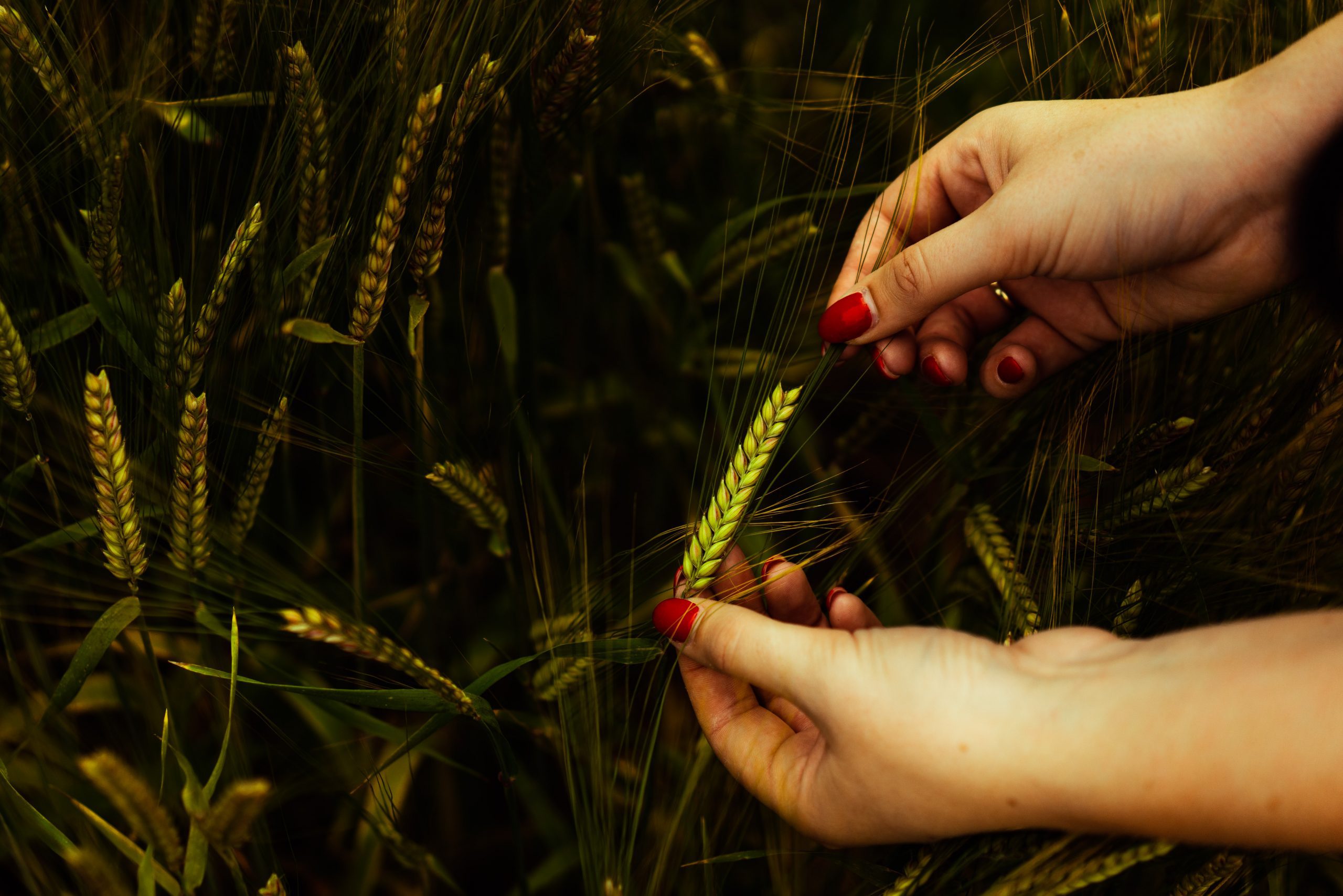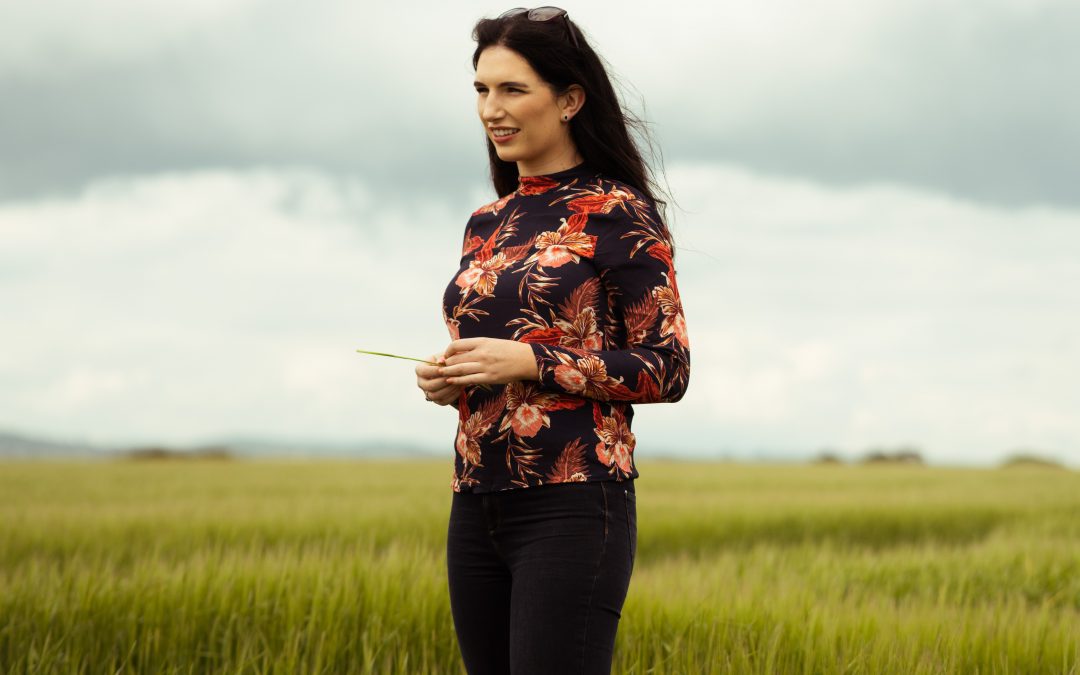Much like the wine industry, distilleries are starting to embrace the study of the terroir and grains that lend their characteristics to the final product. In the agriculture world, the person who studies grains and growing is an agronomist, a growing field in the whiskey world. Meet Waterford Distillery Agronomist Grace O’Reilly, who studies barley malt that goes into Irish Whiskey.
BW: What made you want to study animal and crop production at University?
GO: From the get-go, I was interested in all things farming. Coming from a long line of farming blood in the northeast of Ireland, I grew up on a livestock farm with sheep and cattle. I spent my evenings after primary school following Dad around the farm to coming home from boarding school and university at the weekends where I was always found in the farmyard. It was inevitable that a career in agriculture was in my future but little did I know it would lead me into the exciting world of the spirits industry.
It was during my studies I became interested in crop production and crop walking. Looking from the outside in (being used to livestock farming) I was amazed by how intricate growers had to be to get a crop to harvest. The whole process of preparing a field, to sowing a seed, monitoring its progress against the elements, and to the hustle and bustle of harvest got me! My degree had a diverse range for job prospects but I set my eyes upon becoming a crop walker or agronomist (fancy term) and with that I landed my first role with the largest maltster in Ireland, Minch Malt, in 2015. Minch Malt supplies the malt to Waterford Distillery since the beginning and I was there when the first 40 growers were chosen.
BW: How has the time you spent on working research farms informed your day-to-day job at Waterford Whiskey?
GO: I feel it’s good for anyone to be exposed to research during their career. Most industries have ongoing research whether it be field, product, or consumer-based, it’s all structured quite similarly. Field trials are no different!
I enjoyed the controlled manner of experiments and coming to a conclusion. At Waterford we have to be one of the most innovative distilleries around at the minute?!
We have experiments and surprises running all year round; project after project that makes us all think outside the box of the typical ‘olde worlde’ whiskey types. Focusing on barley and the place it’s grown is refreshing and makes sense from a farming perspective. Growers are basically lifelong researchers of their own plot of land; knowing the difference from field to field. Like that it’s not as controlled as a national crop trial on a day-to-day basis but I’ve certainly used my own experiences of research work out with growers and on in-house research projects like our Terroir Project.
BW: What does a typical day on the job look like for you?
GO: The agronomic field-based role as I knew it, changed considerably when I began working at Waterford Distillery in February 2019. The understanding for real provenance of barley from seed to spirit became my philosophy in this landmark project. I began liaising with a very specific bunch of growers who had supplied the distillery with barley during the journey. Every harvest our grower community increases slightly due to standards and specifications needing to be met for our maltster, Minch Malt, and for our production. We have now a total of 97 growers from 2015-2020 harvest.
Not only is communication with growers and Minch Malt crucial to the part I play at the distillery; the translation of terroir to the production team, branding, media, visitors, or whoever is asking has become a big part of what I and the team do daily.
The field however has not been left behind; a non-stop, all-year-round barley stalker is where I find my happy office escape! We have barley in the ground from late October till harvest in August; so there is always an opportunity to get out on the road and keep an ear to the ground.
BW: What advice do you have for women who want to work as a distillery agronomist?
GO: Being the only distillery possibly in the world with an agronomist, it’s hard to know! My advice would be more aimed towards distilleries themselves, to employ an agronomist and get in touch with the grain that is used to make your spirit. Like the wine world has viticulturists that focus on vines and grape production it makes sense for a distillery to have this resource also.
BW: Tell me about your perfect whiskey weekend in Waterford.
GO: My perfect whisky weekend in Waterford would be like a perfect barley growing season with a mixer of whiskies to complement some sunny days by the beach and cool drizzle evenings by the fire. I find different Single Farm Origins lends to different settings and times of the year! For me Lakefield 1.1 is so fresh and fruity whereas the spice bomb of Hook Head 1.1 has a warmness to it.

Photos Courtesy of Waterford Distillery

